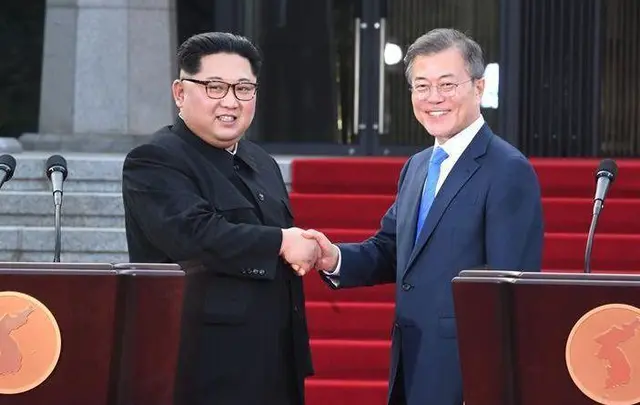As 2017 comes to an end, “Asia Today” presents a seven-day year-end special program called “Asian Faces of 2017.” From Dec. 24 to 30, we will review the seven most-influential figures in Asia and examine how their highs and lows, and their hits and misses, impacted their country, the region and the world.
Five years after Shinzo Abe started his second term as Japanese Prime Minister on December 26, 2012, he found himself in serious challenges.
Abe became embroiled in two school scandals and his approval rate plummeted to the lowest since he took office.
The prime minister made a gambit by calling an early election when many people believed he was on course for the end his political career.
Abe won the election with a timely help from Pyongyang.
The constitution amendment agenda
The victory bought Abe an extra year to pursue his most significant agenda – revising Japan’s pacifist constitution.
The prime minister said he wants to see a “significant rebirth” of the nation in 2020. Some experts speculate a public referendum in 2019.
“In terms of judicial languages, Abe is closing the remarks for his constitution amendment,” Liu Qingbin, an associate professor at Yokohama National University said. “And the judge will be the Japanese society.”
But Liu said he didn’t think the verdict will be in his favor. One of the controversies of the amendment, he said, is about the Article 9.
The Article 9 of Japan's pacifist constitution bans the maintenance of armed forces and war waging right.
“I don’t think the Japanese society will agree to give Abe the rights to make first attacks to potential threats,” Liu said.
The new and old relations
The Abe administration has shown intention to change the nation's defense strategy.
On Tuesday, the Japanese government said it is considering refitting the Izumo helicopter carrier to land US marines fighters.
As Professor Liu considered, the US is still the most important alliance of Japan to help it boost defense power.
In the recently-released defense budget plan for 2018, the Japanese government will spend a large amount of the money on importing two land-based Aegis missile defense systems.
“Japan has to buy those military devices from the US, to show their friendship,” Liu said.
But after US President Donald Trump took office, Japan has intention to put eggs in different baskets.
“The Trump administration is unpredictable, and the Japanese realize that,” Liu said. “This could mean an opportunity for China and Japan to develop relation.”
Japan sent a high-level delegation to southeast China’s Fujian Province on December 25 to convene the seventh meeting of the China-Japan ruling parties exchange mechanism.
The Japanese delegations have announced they will participate more in China’s Belt and Road Initiatives.
Abenomics treading on water
However, Abe still face numerous challenges. After five years, the so called Abenomics is still treading on water.
The failure, economists say partially attributed to increase in corporate retained earnings, benefited from the Abenomics but not reflecting on to the wage hikes. 82 percent of the public say they have not felt the economic recovery.
“The main goals of Abenomics, such as changing consumer’s mind and get Japan out of the deflation spiral are still not successful,” Liu said.
The next step for Abe, as Liu considered, is to figure out a way to get out of his comprehensive economic policy.
The third-longest PM in post-war Japan
Abe may have turned the tide and secured himself more time in office – in fact the victory of the snap election has put him back on track to become the third-longest prime minister in post-war Japan. He also walked away with a 2/3 majority in the diet.
But the road hasn't been easy for the prime minister. With challenges and controversies both domestic and in diplomacy, one little mistake can still jeopardize his hold on power.
(CGTN)
 简体中文
简体中文

